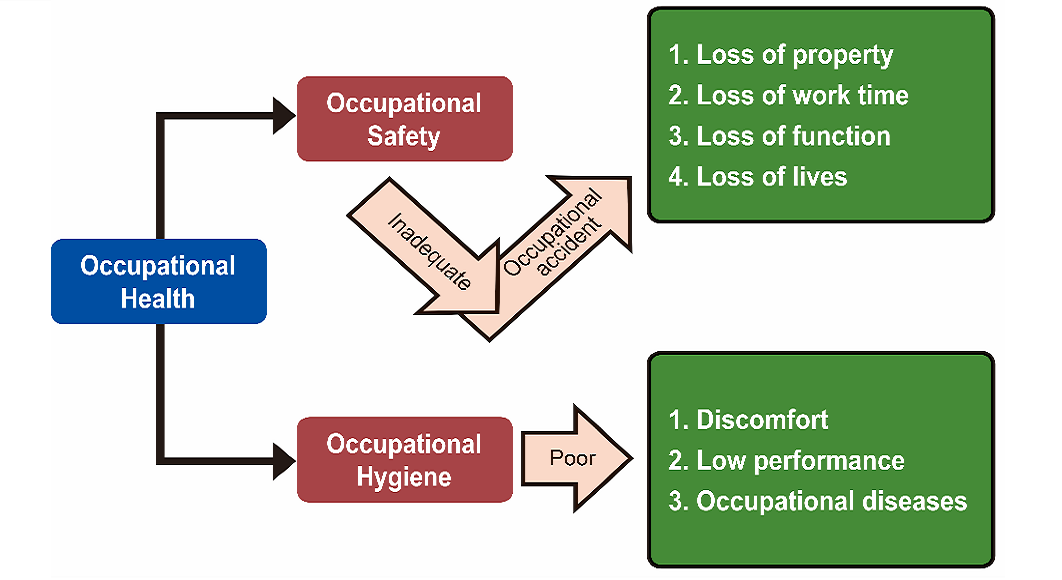You are here
D09-3: Principles of Occupational Health and Challenges of Industrial Disasters

D09-3: Principles of Occupational Health and Challenges of Industrial Disasters

Course Information
(The content of this course is developed by Prof. Shelly Lap-ah Tse, Director of Centre for Occupational and Environmental Health Studies, Jockey Club School of Public Health and Primary, the Chinese University of Hong Kong. The author and her team of tutors (Dr. Feng Wang, Dr. Miaomiao Sun, Miss Suyang Wu) are responsible for the scopes and contents of all lectures included into this course, unless specified elsewhere. The guest editor of this online course is Mr Arick Wan-chung Ng. CCOUC owns the copyright of the diagram and pictures in this course.)
Notes:
The 3rd cohort is now open for registration and study on a first-come-first-served basis. Upon registration, students are allowed to study the course until 31 October 2022 at their own pace. A certificate of completion will be issued for participants who have successfully completed the course.
Occupational health is an important topic for health practice. In order to protect health and well-beings, the need to understand the principles of occupational health and prepare for unforeseeable events is rapidly growing. This course will provide the participants with the overview of occupational hazards and health impacts, fundamental of hazards assessment and control. In addition, it will introduce the workplace emergency planning and responses to industrial disasters, as well as the related challenges to occupational health.
The course will enable participants to:
- Understand the scopes and principles of occupational health;
- Recognize common occupational hazards and relations between work and health;
- Acquire knowledge of measures of control of occupational health hazards;
- Describe emergency planning and risk assessment of industrial disasters.
The target audience for the course is individuals studying and working in health, policy, education, industrial, and humanitarian sectors. Students may be civil servants, healthcare personnel, frontline disaster relief practitioners, and undergraduate or postgraduate students of closely-related disciplines. This online course will be available to anyone in the world.
At the end of this course, participants will have gained:
Knowledge:
- The scopes and principle of occupational health;
- The common occupational hazards and health impact in workplace;
- The methods of control occupational hazards;
- The planning of workplace emergency and responses to industrial disasters.
Skills:
- To identify the methods to assess the occupational hazards;
- To outline the prevention strategies for hazards in workplace.
- Introduction to principles of occupational health and hygiene
- Occupational hazards and health impacts in the workplace 1 – Physical hazards
- Occupational hazards and health impacts in the workplace 2 – Chemical hazards
- Occupational hazards and health impacts in the workplace 3 – Biological hazards
- Occupational health risk assessment and case studies
- Workplace emergency planning, preparedness and responses to industrial disasters
- Challenges of occupational health induced by industrial disasters
1. Short self-assessment quizzes to help students gauge their understanding of the course (quiz 1-3), and
2. A longer final quiz and at the end of the course. All questions are randomly drawn from a question bank. There is no upper limit to the number of attempts for all quizzes.
Students achieving 60% or higher in the final case study and quiz will be issued a certificate of completion.
|
Assessment scheme |
Description |
Passing Grade |
|---|---|---|
|
Quiz 1 |
10 MCQs administered after Lesson 1 |
80% or more |
|
Quiz 2 |
10 MCQs administered after Lesson 4 |
80% or more |
|
Quiz 3 |
10 MCQs administered after Lesson 6 |
80% or more |
|
Final Quiz |
30 MCQs administered after Lesson 7 |
60% or more |




